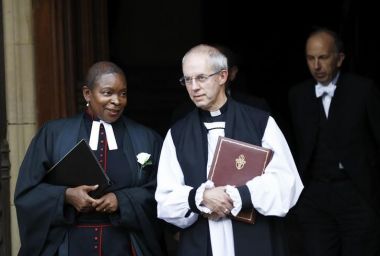Bishops were urged not to apologise fully for child sex abuse to minimise liability risk

Bishops in the Church of England were instructed to give partial apologies to victims of clergy child sex abuse to help minimise the cost of being sued, it has been disclosed.
Confidential legal advice to bishops seen by The Telegraph said the furthest the bishops should go was to "express regret". It warns bishops to be careful before meeting victims, and not to do so without first talking to a lawyer.
It warns of the "unintended effect of accepting legal liability" for sex abuse and the danger of "inadvertently" conceding guilt.
The advice, issued in 2007 and replaced last year, indicates that any apology to a victim of clergy sex abuse should be drafted in a way that would avoid making the Church liable for compensation.
The latest revelation comes after a review earlier this year found at least three clergy, subsequently made bishops in the Church of England, failed to act over "credible" claims of sadistic sexual abuse disclosed repeatedly by a survivor over 40 years. The office of the Archbishop of Canterbury, Justin Welby, was criticised for failing to make a meaningful response as the survivor, "Joe", tried repeatedly through 2015 to get some action taken against his abuser.
The report mentioned how the Church's then head of safeguarding cut contact with Joe on advice from insurers after he began legal action and Lambeth Palace brushed off around 17 requests for a meeting with the Archbishop.
Joe told the Telegraph that the legal advice exposed the prevailing culture.
"The approach to survivors is often a corporate model and this document supports that - it shows a church led by lawyers and insurers, you get the impression that these people are really their masters. A diocese is deferential to their bishop and the bishop is deferential to a bunch of lawyers," he said.
"The Church will say 'our hands are tied' but they are paying the people who are tying their hands. They should say we need to stop this nonsense but they wash their hands like Pontius Pilate."
A Church of England spokesman said: "The Church of England published new guidance in 2015 emphasising that: 'The pastoral response to alleged victims and survivors is of top priority, and needs to be separated as far as possible from the management processes for the situation, and from legal and insurance responses.'
"That superseded all previous advice and ensures that the pastoral needs of survivors must never be neglected and pastoral contact can continue whatever legal issues exist."











